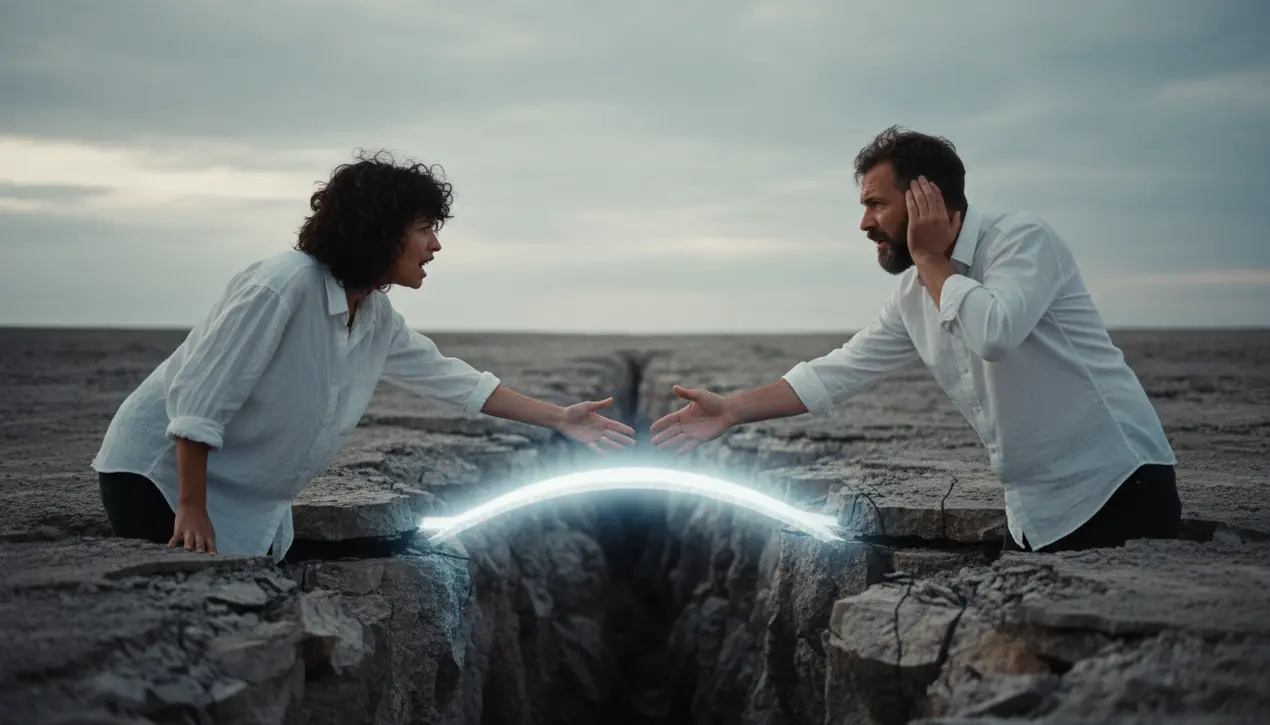
OthereducationEdTech Innovations
Bridging the Divide: The Art of Repairing Communication Breakdowns
LA
Laura Bennett
5 hours ago7 min read
Two individuals connect, feeling a rare and powerful spark. They delight in a connection that seems to transcend the inherent solitude of being, only to later discover they are experiencing the same situation in profoundly different ways.Suddenly, they are clinging to the edge of a chasm, arguing over whose reality is true. What happens next? In my work, I've repeatedly heard the same lament from couples and coworkers alike: 'But I thought we were on the same page.' The rift that emerges is rarely born of ill intent, but rather from unshared context—the internal narrative of past wounds, silent assumptions, and personal anxieties that each person carries. In 1951, against the backdrop of the Cold War, psychologist Carl R.Rogers presented a radical idea at the Centennial Conference on Communications. His proposition remains profoundly relevant today: the key to communication is not eloquence, but achieving a 'state of empathy'—a genuine effort to see the world from another's perspective without the immediate urge to judge or rebut.A retired diplomat I spoke with, who had brokered nuclear agreements, confirmed that his most difficult negotiations occurred at home, where simple conversations about vacation plans could lead to talking past one another. Rogers identified our default response in a conflict: we defend, we explain, we justify.These instincts, however, only widen the divide. The more challenging, yet transformative, approach is to first seek to understand.This means listening not just to the words spoken, but to the human being behind them, and validating their experience as true for them, even when it contradicts your own. This is not an act of capitulation; it is the creation of a psychological safe space where two separate realities can coexist long enough for a third, shared reality to be discovered.The real work happens in the pause—the moment before you reply, where you choose curiosity over the need to be right. It is the conscious shift from saying 'You're wrong' to asking 'Help me understand your perspective. ' This simple but powerful practice, employed by resilient couples and high-performing teams, transforms the abyss from a threat into a frontier for deeper connection.
#communication
#psychology
#Carl Rogers
#conflict resolution
#relationships
#featured
Stay Informed. Act Smarter.
Get weekly highlights, major headlines, and expert insights — then put your knowledge to work in our live prediction markets.
Related News
Comments
Loading comments...
© 2025 Outpoll Service LTD. All rights reserved.